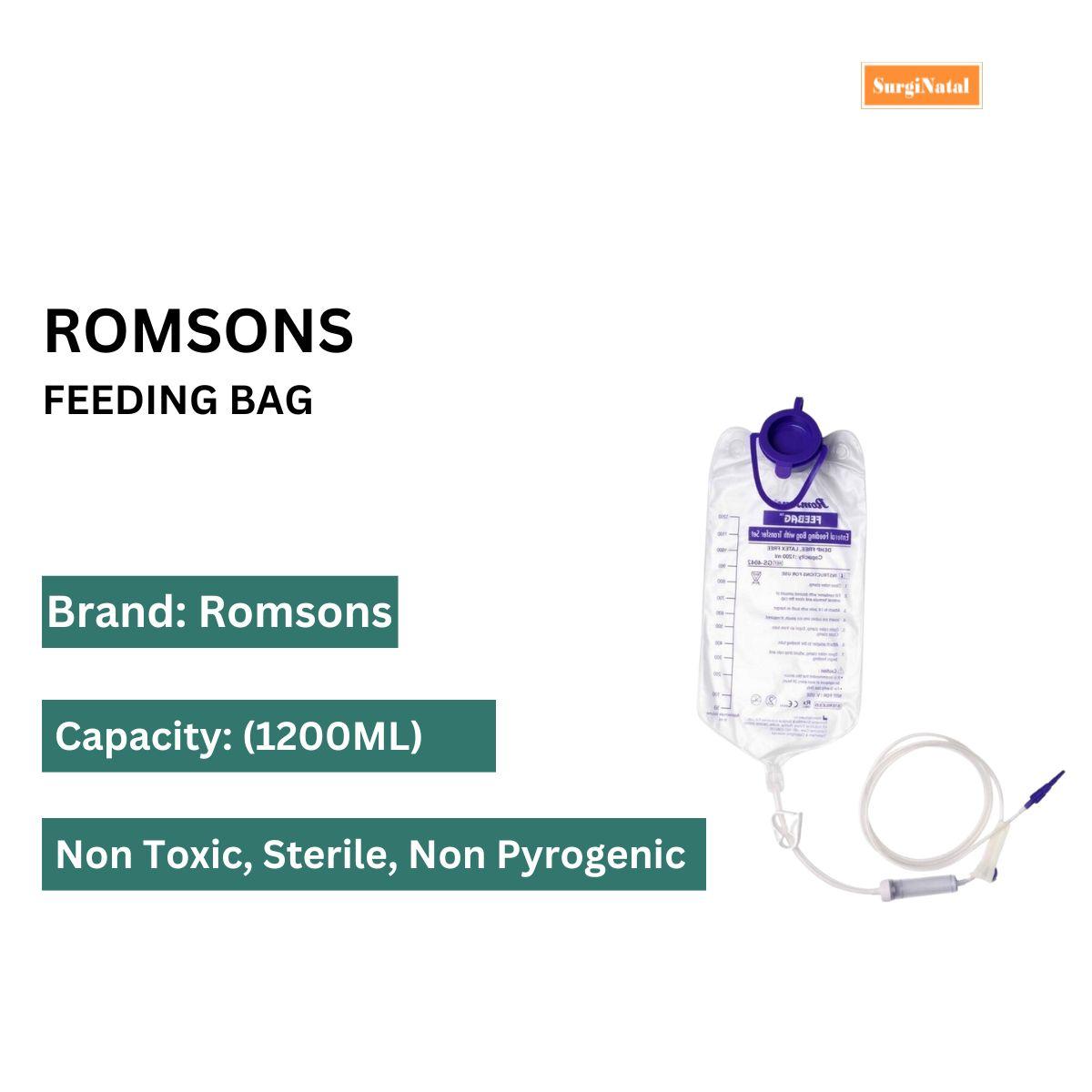Eco-friendly and Sustainable Alternatives to LDPE Bags

The reliance on LDPE plastic bags has come under scrutiny in a world that is increasingly aware of its environmental impact. These lightweight carriers, often considered convenient, contribute significantly to pollution and waste. As consumers grow more conscious of their choices, it’s essential to explore sustainable alternatives that benefit both our planet and our daily lives. Switching from LDPE Bags isn’t just about making a single change; it’s part of a more significant movement towards sustainability. The good news is that plenty of eco-friendly options don’t compromise convenience or style.
Why Switching to Sustainable Alternatives Matters
Switching to sustainable alternatives is essential for safeguarding our planet. LDPE plastic bags are prevalent daily, but their environmental impact is staggering. These lightweight products can take hundreds of years to decompose, contributing significantly to landfill overflow and ocean pollution.
The consequences extend beyond aesthetics; wildlife suffers, too. Marine animals often mistake plastic waste for food, leading to fatal ingestion or entanglement. By moving away from LDPE plastic bags, we protect ecosystems and preserve biodiversity.
Making the switch also fosters a culture of responsibility among consumers and businesses alike. It encourages innovative thinking about materials and packaging solutions, prioritising sustainability over convenience. We can build a cleaner future for generations to come with collective effort.
Biodegradable and Compostable Bag Options
Biodegradable and compostable bags are becoming popular alternatives to traditional LDPE plastic bags. These options break down naturally, reducing the impact on landfills and the environment. Made from materials like cornstarch or sugarcane, they can decompose within a few months under proper conditions.
The beauty of these bags lies in their versatility. Whether you need them for groceries or takeout, biodegradable options serve various purposes while minimizing waste. When disposed of correctly, they return nutrients to the soil instead of lingering in nature for years.
However, it’s crucial to differentiate between biodegradable and compostable products. Not all biodegradable items fully decompose in natural environments; some require specific industrial facilities to break down effectively. Understanding this distinction helps consumers make informed choices that genuinely benefit our planet.
Reusable Cloth and Fabric Bags for Everyday Use
Reusable cloth and fabric bags are a practical choice for everyday use. They come in various sizes, colours, and designs, making finding one that suits your style effortless. Unlike LDPE plastic bags, which are often single-use and contribute to waste, these bags can be utilized repeatedly.
Made from materials like cotton or recycled fabrics, they offer durability while being environmentally friendly. Many brands even produce them with sustainable practices in mind. This means you’re not just making a smart choice for yourself but supporting eco-conscious manufacturing.
Using reusable bags also promotes mindful shopping habits. Carrying your bag makes you less likely to forget it when heading out for groceries or errands. This simple switch helps reduce plastic pollution and encourages others around you to consider their shopping choices more carefully.
Paper Bags as an Eco-Friendly Substitute
Paper bags present a viable and readily available alternative to LDPE plastic bags, offering a more sustainable option for various uses. While they have their environmental footprint, they generally provide advantages regarding biodegradability and recyclability. Here's a closer look:
Renewable Resource
Paper bags are typically made from wood pulp, a renewable resource. Responsible forestry practices ensure that trees are replanted, making wood pulp a more sustainable material source than petroleum-based plastics.
Biodegradability
Paper bags are biodegradable, unlike plastic bags, which can take centuries to decompose. They break down naturally in the environment, reducing the long-term waste burden.
Recyclability
Paper bags are widely recyclable. Many communities have established recycling programs that accept paper, allowing for the reuse of this material and reducing the need for virgin pulp.
Versatility
Paper bags come in various sizes and strengths, making them suitable for multiple applications, from grocery shopping to carrying books or other items.
Reduced Environmental Impact
Paper bags generally have a lower impact on wildlife than plastic bags. They are less likely to entangle animals or be ingested, reducing ecosystem harm.
Innovations in Plant-Based and Starch-Derived Bags
Recent innovations in plant-based and starch-derived bags are revolutionizing sustainable packaging. These alternatives leverage natural materials, such as cornstarch or sugarcane, to create products that break down more efficiently than traditional plastics. This shift is a vital step towards reducing our reliance on fossil fuels.
One exciting development is the creation of compostable bags designed for specific uses, like grocery shopping or food storage. They offer the same convenience as LDPE plastic bags but with the added benefit of environmental responsibility. When disposed of properly, they can decompose within months rather than centuries.
Another noteworthy innovation involves enhancing the durability and flexibility of these bioplastics. Researchers are continually improving their performance characteristics to match those of conventional plastics while ensuring they remain eco-friendly. With ongoing advancements, plant-based options could soon become mainstream solutions for everyday needs.
The Environmental Impact of LDPE Bags
LDPE plastic bags, commonly known as low-density polyethene bags, have become a staple in our daily lives. Yet their widespread use comes with significant environmental consequences. These lightweight bags are not biodegradable and can take hundreds of years to break down in landfills. Eventually, they release harmful toxins into the soil and water systems when decomposing.
Moreover, many LDPE Bags end up in oceans and waterways, posing a serious threat to marine life. Animals can mistake them for food or become entangled in them, leading to injury or death. This creates ripple effects throughout ecosystems that impact biodiversity. Beyond harming wildlife, the production process for these plastic bags contributes to greenhouse gas emissions and relies heavily on fossil fuels—both factors driving climate change. Every single bag produced adds more strain to an already burdened planet.
Switching from LDPE plastic bags to sustainable alternatives is beneficial; protecting our environment today is imperative, and ensuring a healthier future tomorrow is crucial. Small changes lead to significant impacts when we all contribute toward reducing dependency on plastics that harm our world.
The Role of Recycling in Reducing Plastic Waste
Recycling is crucial in reducing plastic waste, including the widespread issue of LDPE plastic bags. When consumers recycle these items, the volume of new plastic that needs to be produced significantly decreases. This helps conserve resources and reduces energy consumption.
However, recycling rates for LDPE plastics remain low due to contamination and lack of proper facilities. Many people are unaware that not all recycling programs accept these plastics, which can lead to them ending up in landfills instead.
Raising awareness about effective recycling practices is essential. Encouraging communities to participate actively in local recycling initiatives can make a meaningful difference. By prioritizing education and accessibility, we can foster an environment where more people understand how their actions impact our planet's health.
How Businesses Can Transition to Sustainable Packaging
Transitioning to sustainable packaging requires a thoughtful approach. Businesses should start by evaluating their current packaging materials. Identifying areas where LDPE plastic bags and other non-biodegradable options can be replaced is crucial for the first step.
Next, companies can explore eco-friendly alternatives that align with their brand values. Options like biodegradable bags or reusable cloth products reduce environmental impact and resonate with increasingly eco-conscious consumers.
It's essential to communicate these changes effectively. Educating customers about the benefits of sustainable choices fosters loyalty and encourages them to support greener practices. By being transparent about sourcing and production methods, businesses create a strong connection with their audience while contributing positively to the environment.
Conclusion
Switching from LDPE Bags to sustainable alternatives can significantly impact our environment. Every small change contributes to a more significant movement toward reducing plastic waste and protecting our planet. Many options are available, from biodegradable bags to reusable cloth solutions. These alternatives not only help in cutting down pollution but also promote a lifestyle that values sustainability. As consumers become more aware of their choices, businesses must adapt by offering eco-friendly packaging. Together, we can create a future where single-use plastics are no longer the norm, fostering a healthier ecosystem for future generations.
FAQs
Many questions arise regarding the impact of LDPE plastic bags and sustainable alternatives. Here are five frequently asked questions that can help clarify some concerns.
What are LDPE Bags made from?
LDPE stands for low-density polyethene. LDPE Bags are made from petroleum-based resources, which makes them part of the fossil fuel industry.
Are there biodegradable options available?
Yes! Options like biodegradable and compostable bags break down more quickly than traditional plastics. However, they require specific conditions to decompose effectively.
Can I recycle LDPE plastic bags?
While technically recyclable, most curbside recycling programs do not accept them due to processing complications. It's best to check local recycling guidelines or return them to designated collection points.
How do reusable cloth bags compare environmentally?
Reusable cloth and fabric bags significantly reduce waste over time. If used consistently, they can replace hundreds of single-use plastics, making them a smart choice for eco-conscious consumers.
What innovations exist in sustainable packaging?
Innovations include plant-based and starch-derived materials that provide an alternative to conventional plastics while less environmentally harmful. Technology is evolving rapidly in this space!
These insights highlight why switching from LDPE plastic bags is vital for personal choices and broader environmental impacts.
|
Related Business Listings |






